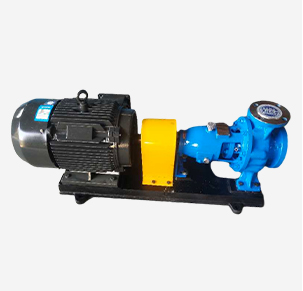English
- Afrikaans
- Albanian
- Amharic
- Arabic
- Armenian
- Azerbaijani
- Basque
- Belarusian
- Bengali
- Bosnian
- Bulgarian
- Catalan
- Cebuano
- Corsican
- Croatian
- Czech
- Danish
- Dutch
- English
- Esperanto
- Estonian
- Finnish
- French
- Frisian
- Galician
- Georgian
- German
- Greek
- Gujarati
- Haitian Creole
- hausa
- hawaiian
- Hebrew
- Hindi
- Miao
- Hungarian
- Icelandic
- igbo
- Indonesian
- irish
- Italian
- Japanese
- Javanese
- Kannada
- kazakh
- Khmer
- Rwandese
- Korean
- Kurdish
- Kyrgyz
- Lao
- Latin
- Latvian
- Lithuanian
- Luxembourgish
- Macedonian
- Malgashi
- Malay
- Malayalam
- Maltese
- Maori
- Marathi
- Mongolian
- Myanmar
- Nepali
- Norwegian
- Norwegian
- Occitan
- Pashto
- Persian
- Polish
- Portuguese
- Punjabi
- Romanian
- Russian
- Samoan
- Scottish Gaelic
- Serbian
- Sesotho
- Shona
- Sindhi
- Sinhala
- Slovak
- Slovenian
- Somali
- Spanish
- Sundanese
- Swahili
- Swedish
- Tagalog
- Tajik
- Tamil
- Tatar
- Telugu
- Thai
- Turkish
- Turkmen
- Ukrainian
- Urdu
- Uighur
- Uzbek
- Vietnamese
- Welsh
- Bantu
- Yiddish
- Yoruba
- Zulu
Telephone: +86 13120555503
Email: frank@cypump.com
Aug . 05, 2024 10:51 Back to list
Exploring the Efficiency and Applications of Hydraulic Slurry Pumps in Modern Industries
Hydraulic Slurry Pumps An Essential Component in Various Industries
Hydraulic slurry pumps play a crucial role in several industrial applications, particularly in mining, construction, and wastewater treatment. These pumps are designed to handle the challenging task of transporting slurries—mixtures of solids and liquids—efficiently and reliably. With advancements in technology, modern hydraulic slurry pumps have become indispensable tools that contribute to increased productivity and reduced operational costs.
Understanding Slurries and Pump Functionality
A slurry is generally a mixture of solid particles suspended in a liquid, typically water. Common examples include coal slurry, mineral slurry, and wastewater containing a variety of solid contaminants. The viscosity and density of these mixtures can vary significantly, making the selection of the appropriate pump critical. Hydraulic slurry pumps are specifically designed to handle these variations, allowing for efficient transfer over long distances and through complex piping systems.
The working principle of hydraulic slurry pumps involves hydraulic pressure that facilitates movement. These pumps utilize a specialized impeller, which is adept at creating the necessary flow and pressure to push the thick slurry through the system. The pump’s design accounts for wear and tear caused by the abrasive materials suspended in the slurry, employing materials like high-chrome alloys or rubber linings to enhance durability.
Applications of Hydraulic Slurry Pumps
1. Mining Industry In mining operations, hydraulic slurry pumps are used to transport thick slurries consisting of mineral ores and water. These pumps handle a variety of slurries, including those produced during the extraction of coal, silica, and metals, ensuring a steady flow from the mine to the processing plant.
2. Construction Projects Construction sites require the efficient handling of slurry materials generated from activities like concrete mixing and soil excavation. Hydraulic slurry pumps are utilized to remove waste materials and transfer concrete slurries, allowing for streamlined operations and improved site safety.
hydraulic slurry pump

3. Wastewater Treatment In wastewater treatment plants, hydraulic slurry pumps are employed to move sludge, which is produced during the treatment process. These pumps help in the consolidation and transportation of sludge to drying beds, digesters, or landfills, ensuring effective waste management and compliance with environmental regulations.
Benefits of Using Hydraulic Slurry Pumps
The use of hydraulic slurry pumps offers several advantages. Firstly, they provide reliable and efficient operation under demanding conditions, which translates to lower maintenance and operational costs. Their ability to handle a wide range of slurry types and flow rates helps industries optimize their processes.
Furthermore, hydraulic slurry pumps are designed with energy efficiency in mind. Many models are equipped with advanced control systems that monitor performance and adjust parameters to ensure optimal operation. This not only conserves energy but also minimizes wear on pump components, extending service life and reducing downtime.
Future Trends in Hydraulic Slurry Pump Technology
As industries continue to evolve, so too does the technology behind hydraulic slurry pumps. Innovations such as smart sensors, IoT connectivity, and automation are proliferating, enabling real-time monitoring and predictive maintenance. These advancements will help operators optimize performance, predict failures, and enhance workplace safety.
In conclusion, hydraulic slurry pumps are vital components in various industries, facilitating the efficient transportation of slurries with a focus on durability and performance. As technology progresses, we can expect these pumps to become increasingly sophisticated, driving productivity and contributing to environmentally sustainable practices across multiple sectors.
-
ISG Series Vertical Pipeline Pump - Chi Yuan Pumps Co., LTD.|Advanced Hydraulic Design&Energy-Efficient Solutions
NewsJul.30,2025
-
ISG Series Vertical Pipeline Pump - Chi Yuan Pumps Co., LTD.
NewsJul.30,2025
-
ISG Series Vertical Pipeline Pump - Chi Yuan Pumps Co., LTD.|energy-efficient fluid handling&industrial durability
NewsJul.30,2025
-
ISG Series Vertical Pipeline Pump - Chi Yuan Pumps | Advanced Engineering&Industrial Efficiency
NewsJul.30,2025
-
ISG Series Pipeline Pump - Chi Yuan Pumps | High Efficiency, Energy Saving
NewsJul.30,2025
-
ISG Series Vertical Pipeline Pump-Chi Yuan Pumps|High Efficiency&Reliable Performance
NewsJul.29,2025










